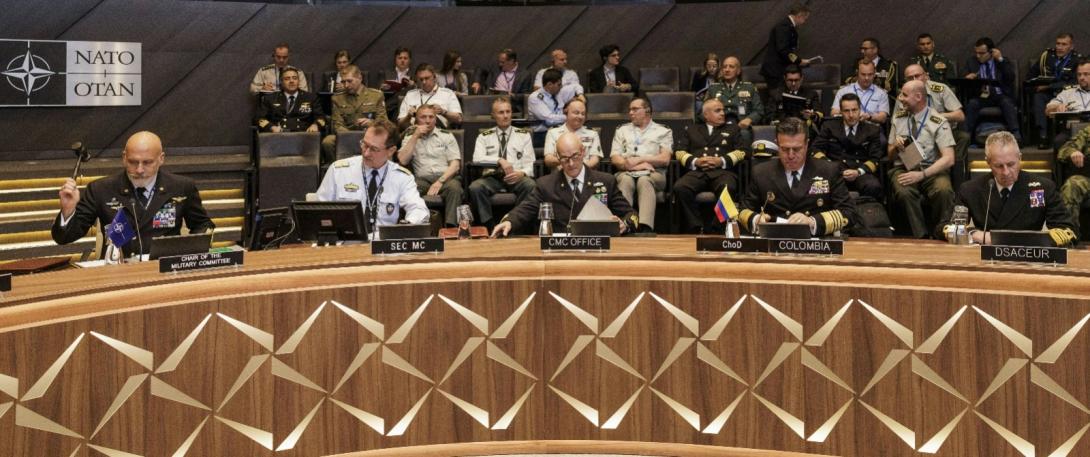For three days a delegation of the Colombian Military Forces, led by Admiral Francisco Hernando Cubides Granados, General Commander of the Military Forces, held high-level meetings with NATO members in Brussels, Belgium.
It should be noted that eight countries are global partners of NATO, with Colombia being the only one in Latin America, which makes the country an international benchmark. This level of relationship began in 2015, but it was in 2021, with the signing of the Personalized Partnership Program – ITPP, that this mutually beneficial alliance intensified.
In order to strengthen the cooperation ties between the Colombian Military Forces and the North Atlantic Treaty Organization - NATO, a high-level delegation composed of representatives of Colombian National Army, the Colombian Navy and the Colombian Aerospace Force, spent three days at the NATO Headquarters in Brussels, and at the Supreme Headquarters of the Allied Powers in Europe, based in the city of Mons, Belgium, with the intention of renewing for three more years the Personalized Partnership Program - ITPP, which aims to improve the scope of the cooperation area on issues such as the fight against terrorism, maritime security, the fight against corruption, science, climate change, emergency management, military education, the promotion of Human Rights, cyber defense, cybersecurity, responses to shared global threats, technology, innovation, as well as the implementation of the women program, peace and security, in which the Colombian Military Forces have made significant progress.
The ITPP are the main tool that NATO uses to coordinate its cooperation with its partners, currently, Colombia and South Korea are the only two countries of the eight global partner countries (Australia, Colombia, Iraq, Japan, South Korea, Mongolia, New Zealand and Pakistan), which have an ITPP in force.
The person in charge of receiving the Colombian delegation was Italian Admiral Giuseppe Cavo Dragone, President of the NATO Military Committee, who made clear the invaluable contribution of this country as the only Latin American global partner. In addition, he highlighted the successful implementation of the ITPP, and expressed gratitude for Colombia's heavy ringleadership for continuing to strengthen the already solid relationship with NATO.
During his speech in parliament, Admiral Francisco Cubides highlighted Colombia's security strategy and its leadership and experience in the fight against transnational threats, particularly against drug trafficking. He in the same way recalled the need of creating heavy partnerships with like-minded nations, with the aim of maintaining the rules-based international order, at the same time, he expressed the progress of the certification-oriented plan within the framework of the Operational Capability Concept Evaluation and Feedback Programme - OCC E&F, a practical tool that strengthens interoperability and leads military Forces to operate under NATO standards. Finally, he recalled that the certification process of the International Demining Center of Colombian National Army as a PTEC - Partnership Training and Education Center is continuing, conditions that are in the same way being sought for other training centers of the Colombian Navy and the Colombian Aerospace Force.
Among the high-level meetings with NATO leaders, there was the meeting with Javier Colomina, NATO Deputy Assistant Secretary General for Political Affairs and Security Policy; the meeting with Lieutenant General Janusz Adamczak, Director General of the NATO International Military General Staff; the audience with General Markus Laubenthal, Chief of Staff of SHAPE and the rapprochement with Daniel Prado Albarracín, Ambassador of Colombia to the Kingdom of Belgium, the latter of vital importance considering that the support of the diplomatic mission in Belgium is key to continue consolidating this effective cooperation through dialogue with European countries.
This official visit reaffirms the commitment, regional leadership and international projection of the Colombian Military Forces with cooperative security, consolidating the country's role as a reliable ally for the stability of the Western Hemisphere and the international people.
Source: Strategic Communications General Command of the military forces

